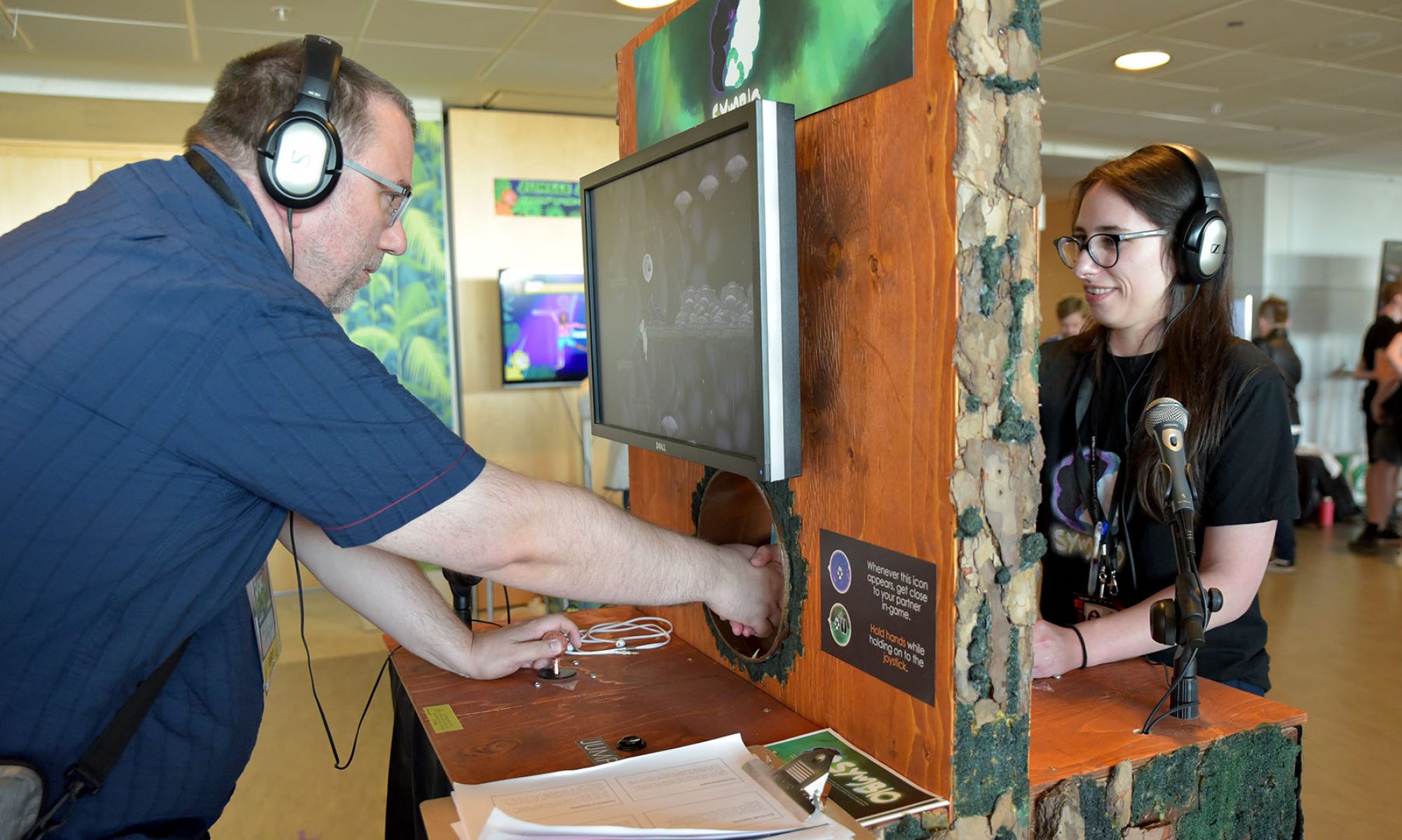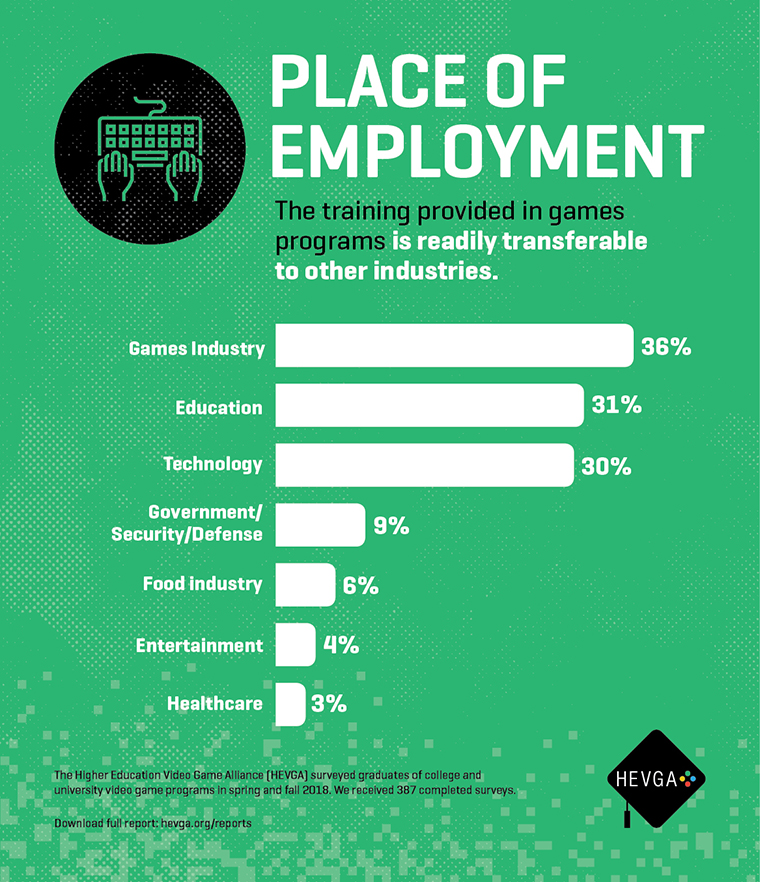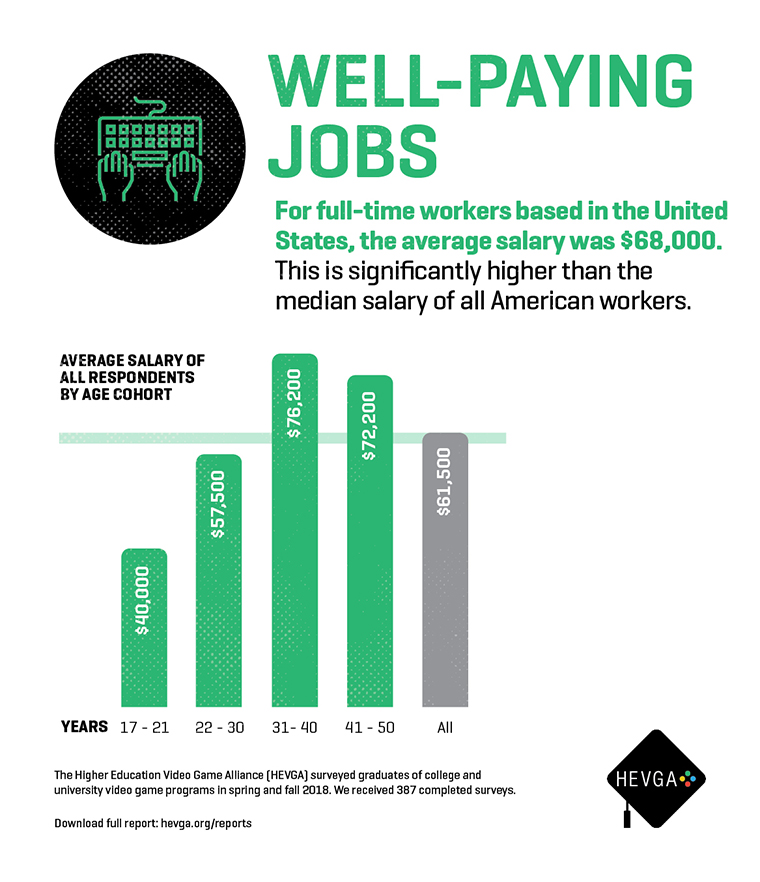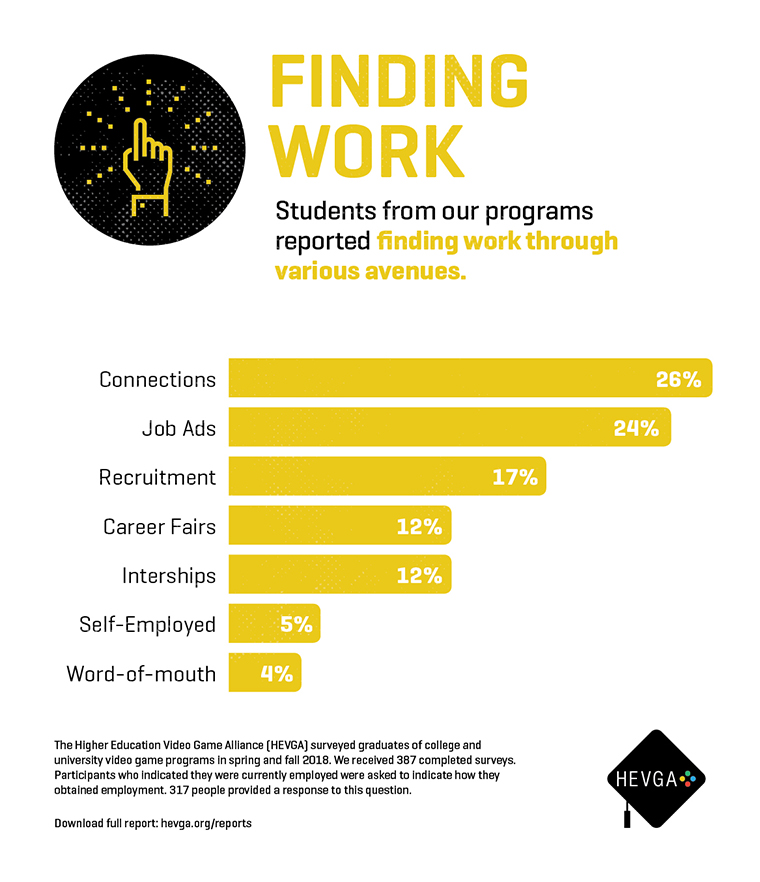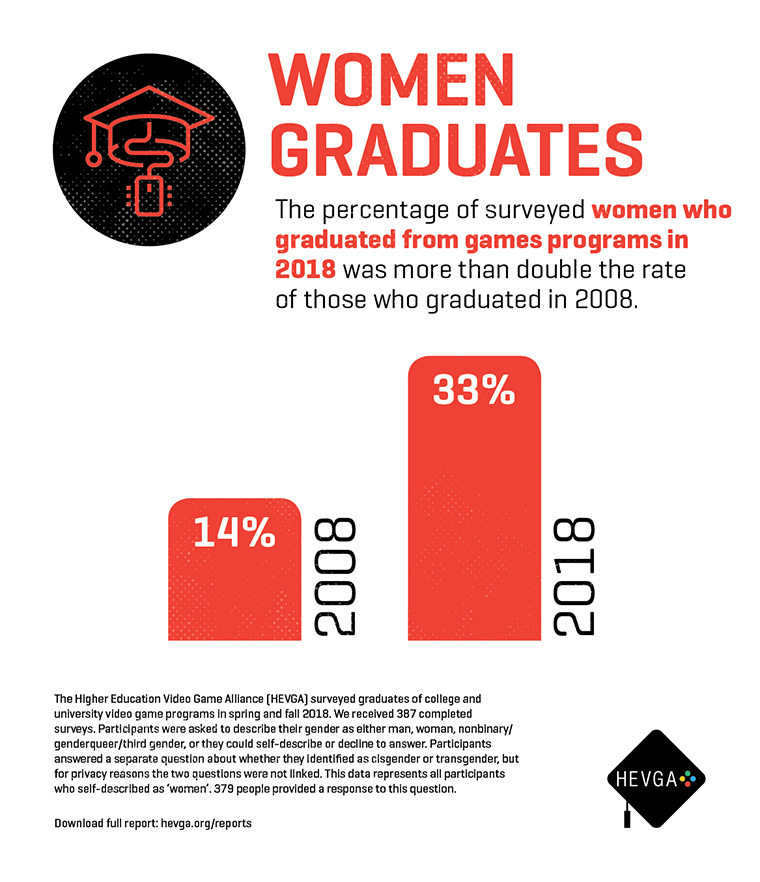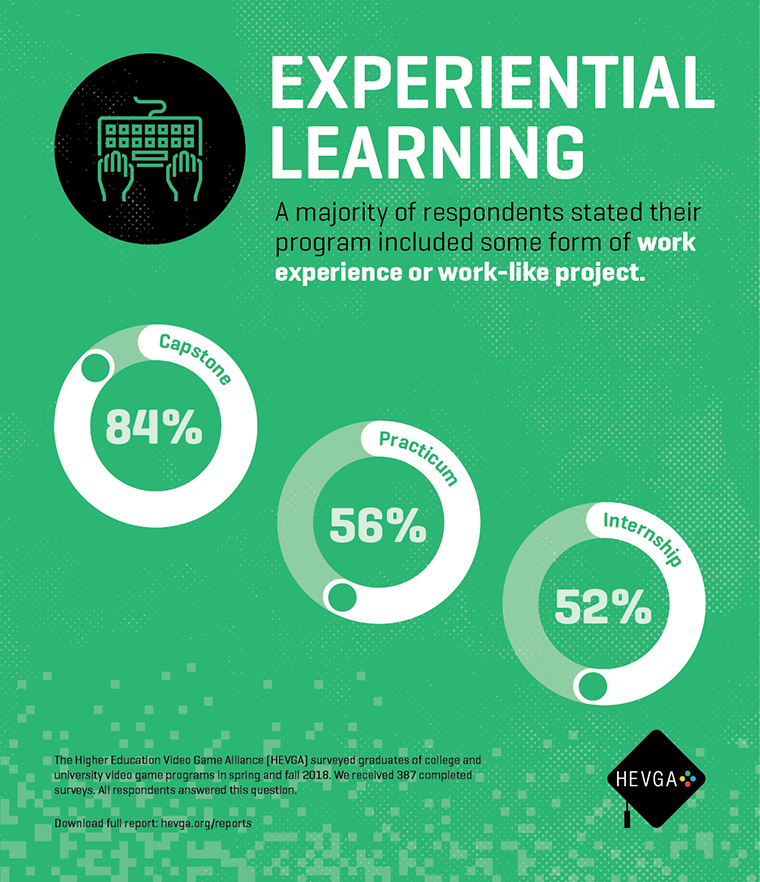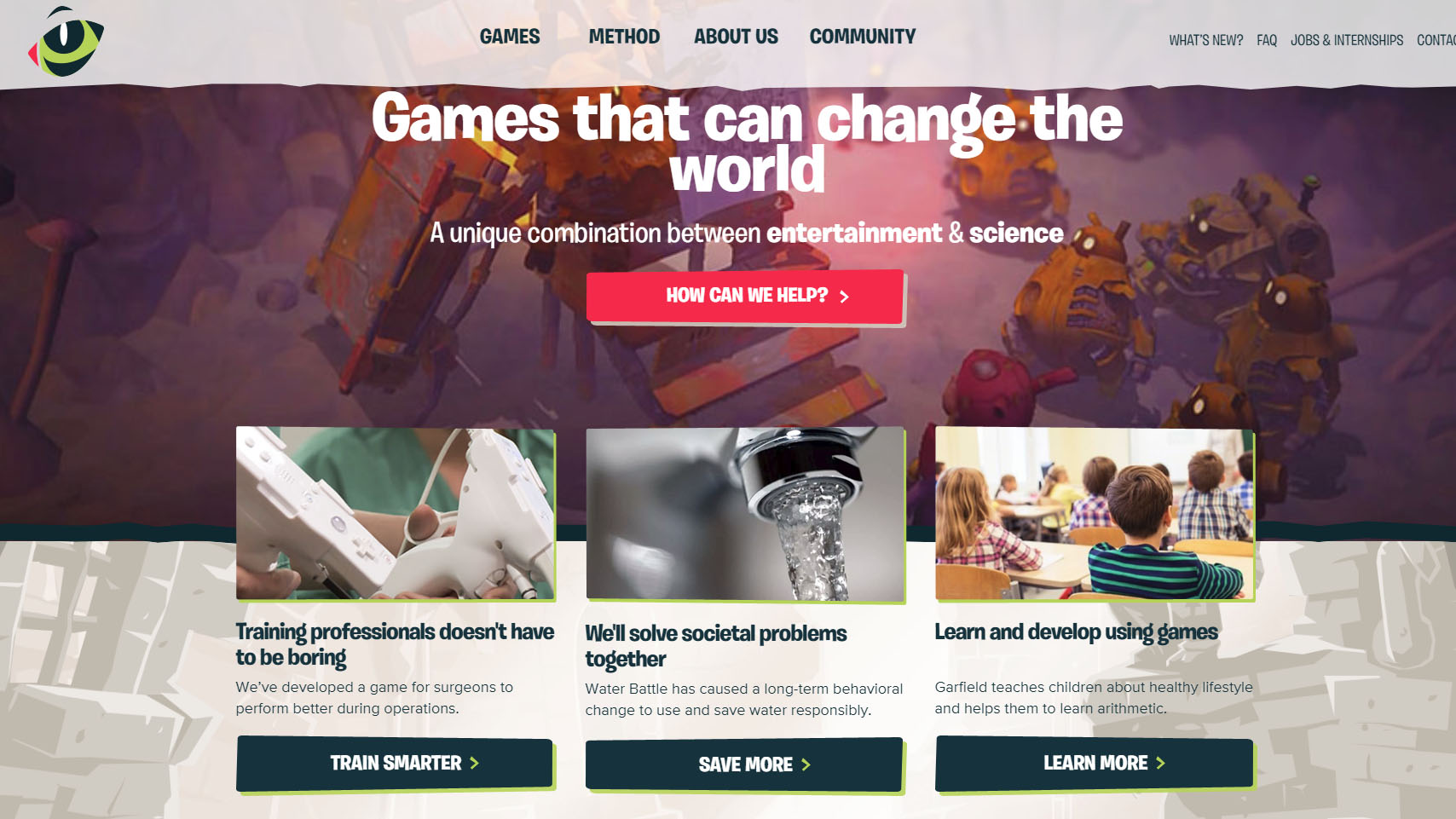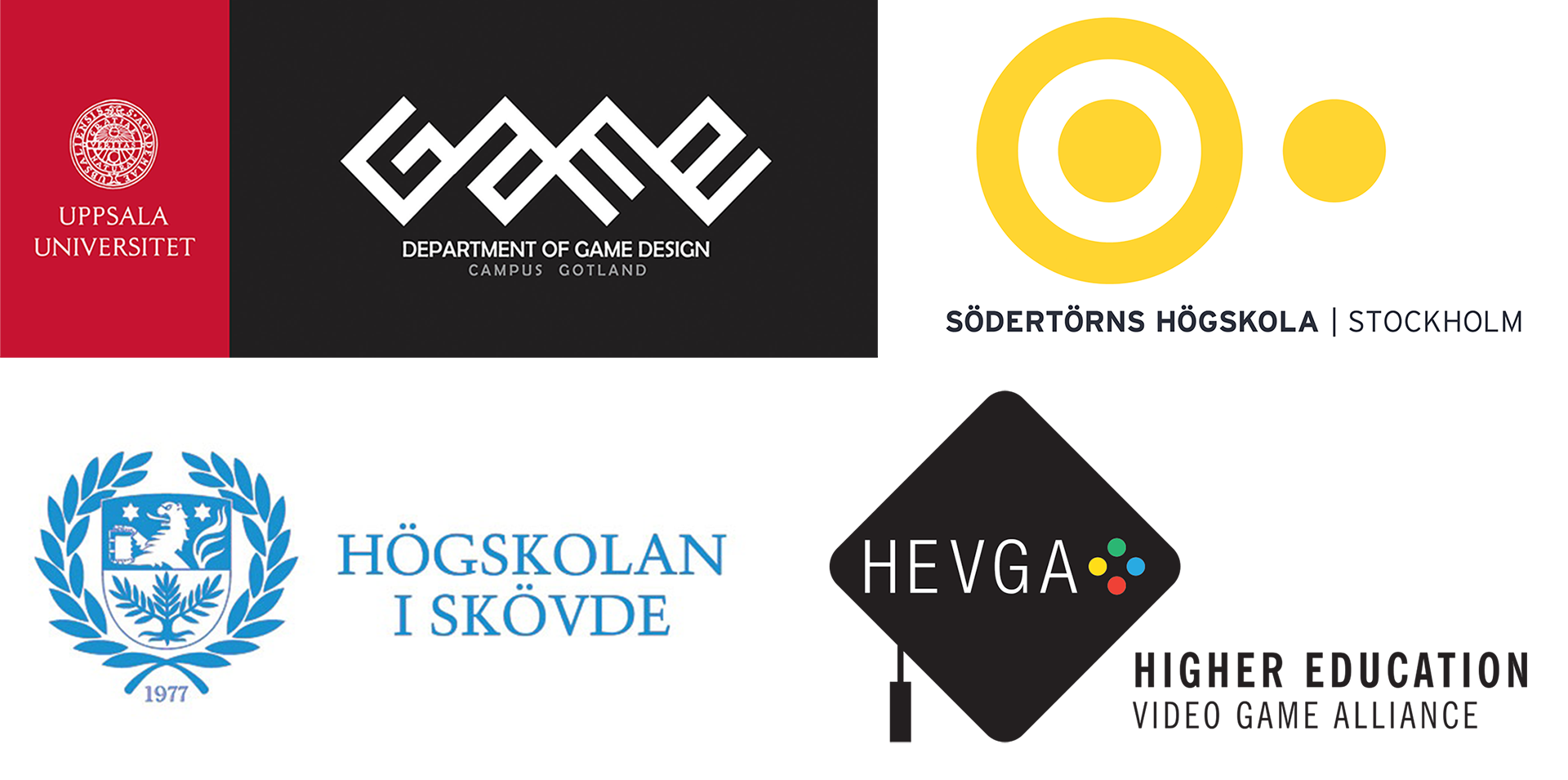
Today the Higher Education Video Game Alliance published its 2019 Survey of Program Graduates.
By surveying alumni of higher education video games programs, HEVGA aimed to understand whether education in video games translates well into future participation in the industry. This survey is a follow-up to HEVGA’s 2015 Survey of Program Graduates. To download the full report, click here or go to hevga.org/reports.
HEVGA is a global network of game educations but the majority of responses to this survey (~89%) were from the US. Ours is a global industry so the information is still relevant for all of us, but for more details about our educations on Gotland in particular please have a look at our own Alumni Statistics.
Highlighted findings
A survey of almost 400 graduates of games programs from colleges and universities found the following:
- Salaries for graduates of university and college games programs are higher than for those with similar education, and much higher than for the average American.
- Graduates find employment in a wide variety of jobs within the game industry. They also find numerous opportunities outside the game industry, which reflects the broad applicability of skills developed in games programs.
- Games programs continue to adapt to changing technological needs and industry demands. Most students have access to internships and practicums.
- Students are less likely to be White than those in the US population. Generally, African Americans are still underrepresented.
- Students are much more likely to identify as LGBTQ+ than the average American.
There remain some significant challenges to graduates’ success in the game industry:
- Women’s job satisfaction drops off quickly—most notably after two years of working in the industry. This is a critical concern that must be addressed.
- Graduates who pursue self-employment in the games industry report lower work satisfaction than those employed in companies.
- Games industry workers who are members of marginalized communities continue to note barriers to inclusion in the workplace.
- HEVGA received few international responses to the survey, which will require specific attention in future surveys.
From the president
“At its core, education helps shape the adults that will build tomorrow, and gives them the knowledge and resources to be productive in ways that are meaningful for them and for a global society.
The following report is a reflection of that vision. It examines what our students are doing during their time at colleges and universities, provides a window into their experiences as graduates, and reveals the real-world impact games education has on their lives in their own words. It examines where they have gone, what they have done, the industries they are impacting, and the myriad of ways they are contributing to the world of our future.
This examination reflects the core of HEVGA’s mission and our commitment to the well-being of our programs and students. Through this report, we are excited to share the collective successes of our alumni and information about their experiences after graduation. It is personally gratifying every time we are able to release such material, as it highlights HEVGA’s key role in observing and reporting the overall trends, issues, and practices of games in higher education, with an aim toward continual improvement.
Andrew Phelps, HEVGA president
